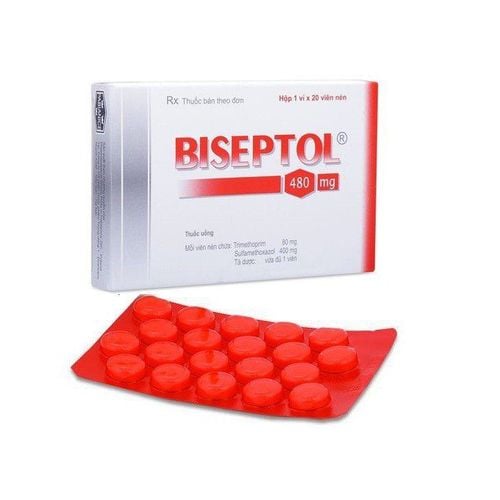This is an automatically translated article.
Posted by Master, Doctor Mai Vien Phuong - Department of Examination & Internal Medicine - Vinmec Central Park International General Hospital
Irritable bowel syndrome is a type of digestive (digestive) disorder that causes frequent changes in your bowel movements. People with irritable bowel syndrome also have other symptoms such as abdominal pain. Just as your symptoms can vary depending on your condition, knowing exactly what type of irritable bowel syndrome you have is important in determining the correct treatment.
1. Types of Irritable Bowel Syndrome
As a functional digestive disorder, irritable bowel syndrome is caused by a disruption in the way your brain and gut interact with each other. This is usually a chronic (long-term) digestive disorder that mainly develops before age 50.
It is estimated that between 7 and 21 percent of people have irritable bowel syndrome. Women are twice as likely to develop this condition as men.
When you think of irritable bowel syndrome, you probably think of a number of notable symptoms, including:
Abdominal pain Abdominal cramps, bloating, and gas Abnormal bowel movements Dietary Irritable Bowel Syndrome For some people, dietary changes can help ease symptoms. Because the symptoms of IBS vary among sufferers, approaches to dietary changes need to be different.

2. Irritable Bowel Syndrome Treatment
There is no cure for irritable bowel syndrome. Treatment is aimed at reducing symptoms. Initially, your doctor may ask you to make certain lifestyle changes. These "home treatments" are often suggested prior to the use of medication.
Home remedies for irritable bowel syndrome
Some home remedies or lifestyle changes can help relieve your IBS symptoms without the use of medication. Examples of these lifestyle changes include:
Engage in regular exercise Cut down on bowel-stimulant caffeinated drinks Eat small meals Reduce stress (talk therapy can help) Take yeast probiotics (the “good” bacteria normally found in the gut) to help reduce bloating and gas Avoid fried or spicy foods Foods to avoid with irritable bowel syndrome
Manage your diet when you have Irritable bowel syndrome can take a little more time but is usually worth the effort. Adjusting the amount or eliminating certain foods such as dairy, fried foods, undigested sugars, and beans can help relieve various symptoms. For some people, adding spices and herbs like ginger, mint, and chamomile has helped relieve some irritable bowel syndrome symptoms. Learn more about how certain foods interact with irritable bowel syndrome symptoms.
Irritable bowel syndrome medication
If your symptoms do not improve through home remedies, such as lifestyle or dietary changes, your doctor may suggest using medicine. Different people may respond differently to the same medication, so you may need to work with your doctor to find the right medication for you.
As with all medications, when considering new medications, it's important to let your doctor know what medications you're taking, including herbal remedies and over-the-counter medicines. This will help your doctor avoid any medications that might interact with what you're taking.
Some drugs are used to treat all symptoms of irritable bowel syndrome, while others focus on specific symptoms. Medications used include drugs that control muscle spasms, anti-constipation medications, tricyclic antidepressants for pain, and antibiotics. If your main irritable bowel syndrome symptom is constipation, linaclotide and lubiprostone are two medications recommended by the American College of Gastroenterology (ACG).

3. What causes irritable bowel syndrome?
Although there are ways to treat irritable bowel syndrome, the exact cause of irritable bowel syndrome is unknown. Possible causes include an oversensitive colon or immune system. Infectious irritable bowel syndrome is caused by a previous bacterial infection in the digestive tract. Various possible causes make irritable bowel syndrome difficult to prevent.
The physical processes associated with irritable bowel syndrome can also vary, but may include:
Slowing or spastic movements of the colon, causing cramping Abnormal serotonin levels in the colon, affect peristalsis and bowel movements Mild celiac disease damages the intestines, causing irritable bowel syndrome symptoms
4. Triggers for Irritable Bowel Syndrome Symptoms
For many people, the key to managing IBS symptoms is avoiding the trigger. Certain foods as well as stress and anxiety can trigger IBS symptoms for many people.
Certain foods are common triggers for many people with irritable bowel syndrome. However, some of these foods may affect you more than others. It can be helpful to keep a food diary over a period of time to see which foods are triggering for you.
Being aware of situations in advance that may increase your stress and anxiety levels can be helpful. This can give you time to plan to avoid these situations when possible or develop strategies to limit stress and anxiety. Learn more tips for avoiding and managing irritable bowel syndrome triggers.
4.1 Irritable Bowel Syndrome with Stress The automatic movement or peristalsis of your digestive system is controlled to a large extent by your nervous system. Stress can affect your nerves, causing your digestive system to overwork. If you have irritable bowel syndrome, your colon may overreact, possibly even causing mild disturbances to your digestive system. It is also believed that irritable bowel syndrome is affected by the immune system, which is affected by stress. Learn more about the many ways that stress can affect irritable bowel syndrome.

4.2 Irritable bowel syndrome with weight loss Irritable bowel syndrome does not affect everyone's weight with this condition. However, it can lead to weight loss if you don't eat enough to maintain your weight to avoid symptoms. Cramps may come more often right after you eat. If frequent diarrhea is one of your symptoms, it's possible that your body isn't getting all the nutrients from the foods you eat. Your weight may decrease as a result of this. Learn more about the ways irritable bowel syndrome can affect your weight.
4.3 Irritable bowel syndrome with diarrhea Irritable bowel syndrome with diarrhea is a specific type of irritable bowel syndrome. It mainly affects your large intestine. Common symptoms of irritable bowel syndrome with diarrhea include frequent bowel movements and nausea. Some people with irritable bowel syndrome have diarrhea that sometimes loses control of their bowels. Learn more about diagnosing and treating irritable bowel syndrome with diarrhea and tips for managing symptoms.
4.4. Irritable bowel syndrome with constipation Irritable bowel syndrome with constipation is a type of irritable bowel syndrome that often affects adolescents and young adults. Hard and less frequent stools as well as constipation are the most common symptoms of this type of irritable bowel syndrome.
Currently, Vinmec International General Hospital is a prestigious address trusted by many patients in performing diagnostic techniques for digestive diseases, irritable bowel syndrome, chronic diarrhea, diseases. Crohn's disease, ectopic gastric mucosa in the esophagus, reflux esophagitis...
Vinmec Hospital with modern facilities and equipment and a team of experienced specialists, always dedicated to the examination For treatment, customers can rest assured with gastroscopy and esophagoscopy services at Vinmec International General Hospital.
Please dial HOTLINE for more information or register for an appointment HERE. Download MyVinmec app to make appointments faster and to manage your bookings easily.
ReferencesGrundmann O, et al. (2010). Irritable bowel syndrome: epidemiology, diagnosis and treatment: an update for health-care practitioners. DOI: 10.1111/j.1440-1746.2009.06120.x Houghton LA, et al. (2002). The menstrual cycle affects rectal sensitivity in patients with irritable bowel syndrome but not healthy volunteers. DOI: 10.1136/gut.50.4.471 Irritable bowel syndrome . (2016). ncbi.nlm.nih.gov/pubmedhealth/PMH0072600/ Irritable bowel syndrome. (2015). niddk.nih.gov/health-information/digestive-diseases/irritable-bowel-syndrome














